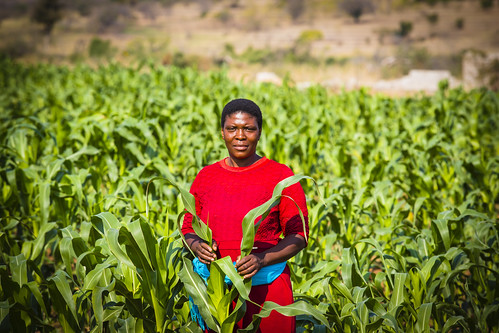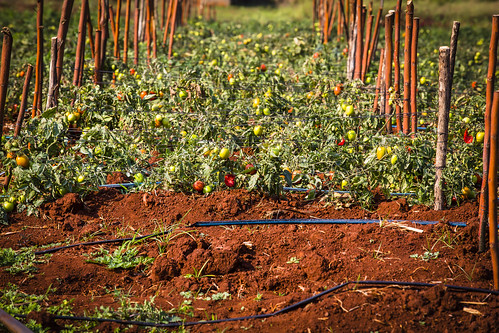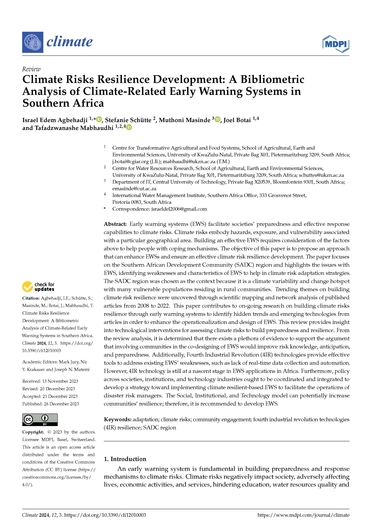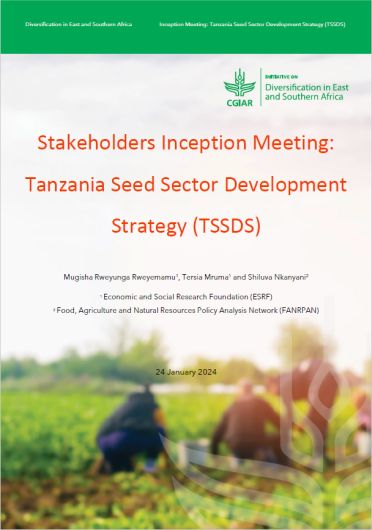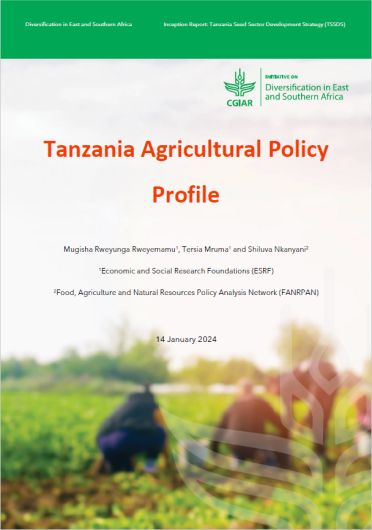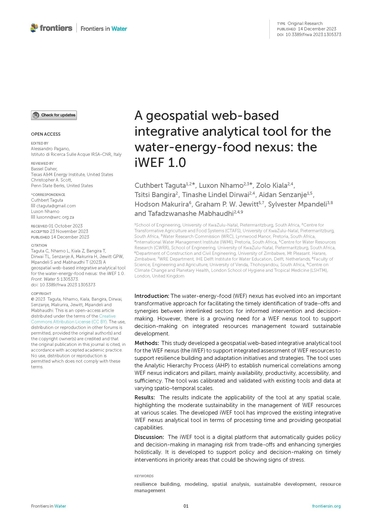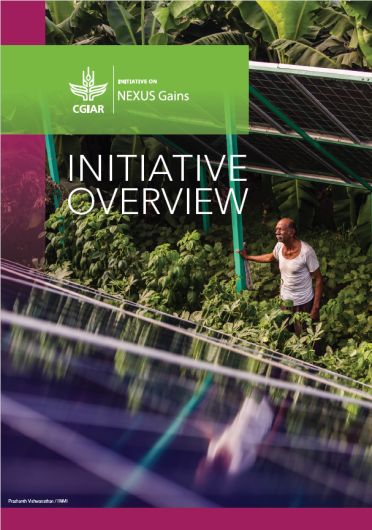IWMI in Southern Africa
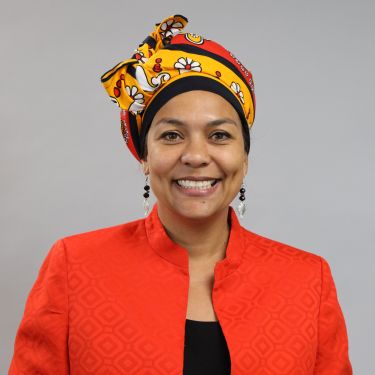
Yet, in many countries in Southern Africa, there is enormous untapped irrigation potential: only 7% of the region’s 50 million hectares of arable land is irrigated. Nevertheless, there have been major accomplishments in water policy in the region, which saw a wave of pioneering policy reforms in the 1990s. However, implementation has lagged for a variety of reasons, including limited capacity and differing expectations around rights to water access and use.
IWMI has been instrumental in devising interdisciplinary tools to assess transboundary aquifers in the region, and in linking these assessments to strategic action plans and developing solutions. We develop tools to better understand the quantity and quality of groundwater, and the impacts of urbanization and climate change. We also support policy dialogues, incorporate knowledge on climate change impacts into groundwater management strategies, and develop institutional and technical capacities for catchment-scale and transboundary groundwater management. IWMI supported the establishment of the Groundwater Committee under the Limpopo Watercourse Commission, coordinates the Groundwater Solutions Initiative for Policy and Practice (GRIPP), a global partnership for sustainable groundwater management, and supports the Pan-African Groundwater Program (APAGroP) of the African Ministers’ Council on Water (AMCOW).
APAGroP is a strategic partnership platform for brokering groundwater information, and for supporting the strengthening of member states and regional and international organizations in their capacity to manage groundwater sustainably. IWMI also supports the Kavango-Zambezi Transfrontier Conservation Area (KAZA TFCA), the largest conservation area in the world shared between five countries in Southern Africa, in developing joint and integrated groundwater knowledge, management plans and institutions. Another portfolio under this strategic program focuses on nature-based solutions to water challenges. Southern Africa has long depended on natural (‘green’) infrastructure to maintain water security.
Investments in the water sector have focused on human-engineered (‘gray’) infrastructure solutions. This has created stresses, such as the destruction of ecosystem services, debt burden, lack of technical know-how, poor maintenance, and inflexible design and operation. IWMI is exploring an approach that uses a balance between green and gray infrastructure to deliver water services to ensure access, equity and affordability, while protecting the terrestrial and aquatic ecosystems that produce those services. Our research focuses on environmental flows; managed aquifer recharge; ecosystem health; integrating ecosystem services into water management, including green infrastructure in planning and operations; and building public appreciation and promoting investment options for green infrastructure.
We support the development and delivery of tools to reduce climate risks to agri-food systems, including digital advisory support services that can be used by decision-makers in climate-smart planning and development. IWMI is also working on the development of appropriate and sustainable business models, while identifying innovative finance modalities and incentives for scaling climate-smart and socially-inclusive agriculture. Another project aims to develop an innovation accelerator grant for start-ups, small and medium-sized enterprises, and other public-private partnerships. The objective is to reduce the risks of piloting and scaling technical, digital, financial and social innovations that enhance climate resilience in agricultural value chains, while promoting social inclusion and the sustainable use of land and water resources.
One of the key commitments made in the Malabo Declaration was to promote mutual accountability in the agriculture sector through country-level sectoral progress reviews conducted every two years (biennial reviews). IWMI leads the Southern African node of the Regional Strategic Analysis and Knowledge Support System (ReSAKSS-SA), which provides technical support to countries tracking their progress towards achieving national targets. Specific tools developed by ReSAKSS-SA and IWMI for data management include a geographic information system (GIS)-based e-Atlas for water data management, and databases for water-related indicators of CAADP.
Evidence shows that several countries in Africa are strengthening their policies and increasing public and private sector funding in support of agriculture, indicating that the efforts of ReSAKSS are contributing to higher agricultural productivity and transformation. Following the migration of the three programs initiated by the International Food Policy Research Institute (IFPRI) to support CAADP, activities of the ReSAKSS program at a continental level are being managed by AKADEMIYA2063 (an international, nonprofit organization) since July 2020. Many Southern African countries have well-established water laws. However, communities may not be well-informed about national regulations or be able to apply for or afford the water use permits imposed upon them. Also, communities often adhere to customary water laws and practices.
IWMI works with several countries in the region to determine how to combine customary and traditional laws to create water and land use rights systems that support inclusive rural development and farmer-led irrigation, while ensuring the sustainable use of limited water resources. Such a hybrid approach to water law needs to address the needs and priorities of all water users, particularly women, who represent a large number of small-scale farmers and the majority of domestic water users in Southern Africa. IWMI works in remote rural areas where potable water is often unavailable in adequate supply. Here, we assist communities with a process known as ‘supported self-supply’, whereby they identify their water needs, develop budgets and planning tools, and identify sources of funding. IWMI helps communities develop sustainable, cost-effective and equitable mechanisms for financing both domestic and productive water use. Community water management tends to be more sustainable than externally-implemented water supply frameworks.



